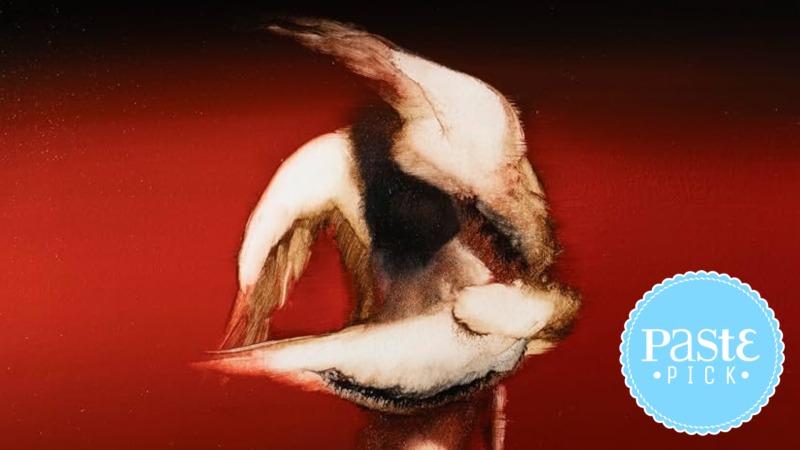Maruja Pens a Love Letter to Solidarity on Pain to Power
Paste Pick: The Manchester quartet’s long-awaited debut album is a feral and loving atmosphere calling attention to world crises. The songs are overwhelming but never threadbare, packed with colossal brass, elastic diatribes, and tourniquet rhythms.

I heard “Look Down On Us” for the first time at South by Southwest in March, when Maruja turned its instruments up so loud that businesses at the opposite end of East Cesar Chavez could hear the four men wail, “Free, free Palestine!” It was nearly a 10-minute rapture of jazz, post-hardcore, rap, and spoken-word poetry. The Texas crowd ruptured into a mosh pit—parted down the middle by saxophonist Joe Carroll, who swung his instrument at phone cameras and puffed into the mouthpiece like a breathalyzer. In the center of the chaos writhed a shirtless Harry Wilkinson, whose sweat wept through his pink board shorts and into his sneakers. He sang about late-stage capitalism and ushered a few dozen through “reflection[s] of the times we live in.” “Look Down On Us,” in the Austin heat which lapped against my burning back, was grotesque and visceral, vibrating between critique and solidarity. Wilkinson shouts the song’s title through a head-splitting medley of sonic struggle, telling us to “put faith in love, be firm and loyal. In yourself, put trust. Be twice the ocean, be twice the land. Be twice the water for your sons and daughters.”
Maruja—Wilkinson, Carroll, Matt Buonaccorsi, and Jacob Hayes—has been playing together for 11 years, forming in the doldrums of Manchester just before the Conservatives regained parliament majority. The band’s 2024 EP, Connla’s Well, called to mind Gang of Four, Popol Vuh, and Godspeed You! Black Emperor via space-age, krauty blends and splashy post-punk renders. Jazzy textures taste the same frequency as blown-out hardcore firestorms, especially on a song like “The Invisible Man.” Connla’s Well, like Knocknarea before it and Tir na nÓg after it, feasts on a listener’s energy, with raging music that careens through fits of sax, thudding drums, and unsettling, incongruent guitars. Maruja’s style is an intense and compelling entropy; they are, by all metrics, a symphonic, crushing band inspired, in almost equal measure, by Herbie Hancock, Swans, and Kendrick Lamar.
But Maruja’s EPs can only carry a listener so far, even if Tir na nÓg was just one unending swish of death-rattle woodwinds and profuse, apocalyptic singing separated on a tracklist by arbitrary titles only. On the band’s long-awaited debut LP, Pain to Power, the song-building unfolds like a series of grieving mini-suites, as disillusionment and spirituality sit at odds with one another in these grand musical gestures of empathy and relevance. Maruja extrapolates history by resisting annihilation, tyranny, and the consumerism that currently preys on vulnerable people. The ongoing extermination of Palestinians and the ongoing massacre in Gaza both anchor the album, as do images of a global migrant crisis, failing healthcare system, and rising authoritarianism. “We may sound angry, but our message is one of peace,” Wilkinson tells every crowd he meets. The feral and loving atmosphere of Pain to Power is a revolution hewn by a faith in unity and illustrated in simplistic, recurring motifs. As “Reconcile” goes: “We are love in abundance.”
-

-

-

-

-

-

-

-

-

-

-

-

-

-

-

-

-

-

-

-

-

-

-

-

-

-

-

-

-

-

-

-

-

-

-

-

-

-

-

-








































